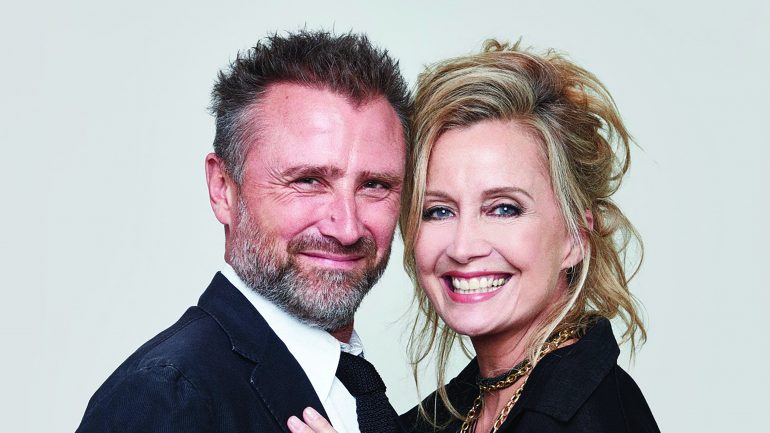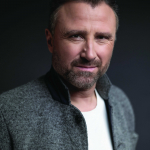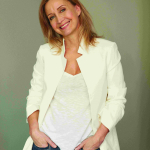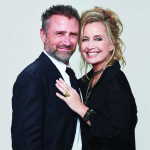You’re currently on stage with Alexandre Brasseur in Un grand cri d’amour, written by Josiane Balasko. What drew you to this play, and how did the collaboration with Alexandre go?
C.M. : Although we had known and liked each other for years, we had never worked together. Being on stage with Alexandre was one of the reasons I accepted the project. Our different approaches to comedy make us complementary, and our chemistry is a real asset. We give our all in full trust, and the audience can feel that.
You’re currently sharing the stage with Catherine Marchal in Un grand cri d’amour. What attracted you to this comedy, and how is your collaboration going? (Smile)
A.B. : What I love most about Un grand cri d’amour is that, while it appears to be a comedy, it’s much deeper. Beneath the laughs and situations, there’s a drama-a reversed tragedy, really. It’s a love story gone wrong. So, it’s not just about slamming doors or lovers hiding in closets. It’s a profound play, which makes it incredibly satisfying to perform. For actors, and especially in theater, that’s essential. It keeps things fresh and enjoyable in every performance, which is crucial if you want to sustain it long-term.
My collaboration with Catherine is key. She’s a thoughtful actress, very dedicated, and completely in tune with what’s happening on stage. She knows how to seize the moment and make it her own. In that way, we’re very similar in how we work. She serves the project, the script, and the direction, not just her own performance. We’re a team, just like Jean-Marie and Fred, who are part of this adventure with us.
In the TF1 series Brocéliande, you played a killer, quite different from your usual law-abiding roles. Do you enjoy portraying darker characters?
C.M. : I’ve played many dark roles, but usually on the right side of the law. This time, I crossed the line. Playing a cold-blooded killer who appears to be a perfect wife and mother was intriguing. The challenge was finding the right amount of ambiguity.
Tell us about your character, Hugo Martial, a successful actor trying to revive his career. Do you share any similarities with him?
A.B. : There are many similarities between Hugo and me. I think that’s true for most actors, not just me. Being a performer isn’t as easy as people think. People often see the fame without realizing the doubts, isolation, and the dependency on others’ desires that can plague actors. You can have all the talent in the world, go to the best schools, be at the height of your career, and still not find work. This can create deep frustration for some. So yes, I relate to Hugo, and I see these traits in many of my colleagues throughout my career.
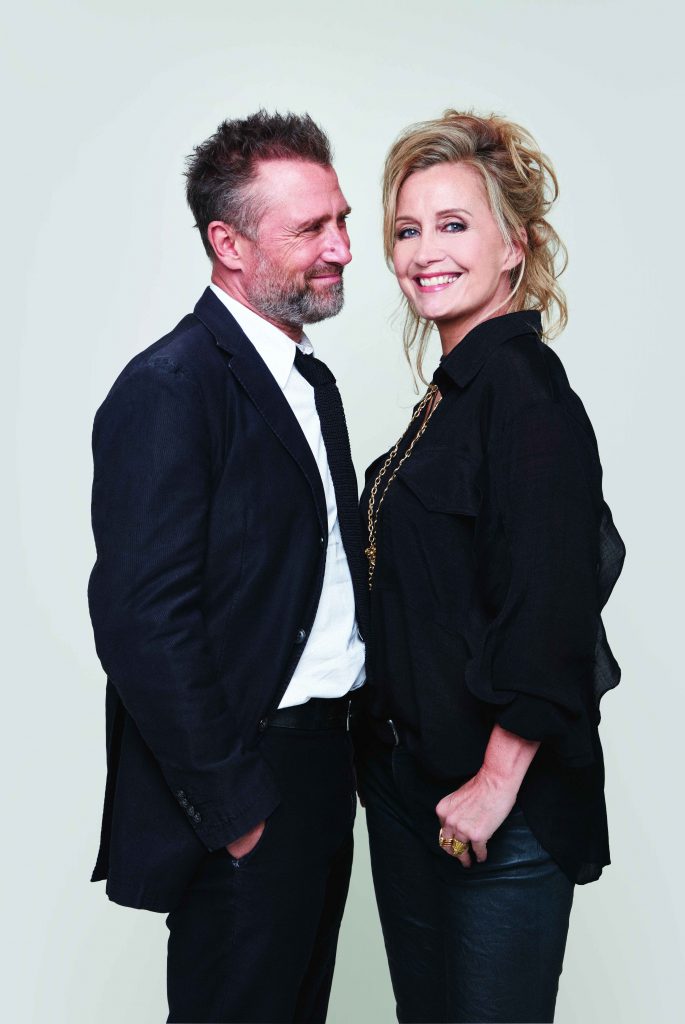
Is there a dream role you still hope to play?
C.M. : I love playing real people. Telling true stories feels like both a mission and a performance. I think of roles like Erin Brockovich or Kate Winslet as Lee Miller. Even for fictional roles, I always draw inspiration from real people.
You’ve been a central character in Demain nous appartient for several seasons. How do you keep your character interesting over the years, both for yourself and the viewers?
A.B. : Indeed, I’ve been in Demain nous appartient on TF1 for seven years. However, it’s not me who makes the character evolve-it’s the writers. They create the storylines and determine the characters’ fates. Sometimes, they ask for my input, and I share suggestions, but that’s not my role. I’m an actor, and my job is to interpret the script.
You’ve mostly been directing in recent years. What made you return to the stage, and who is Gigi Ortega, your character?
C.M. : I hadn’t acted in theater for twelve years and missed it. Gigi Ortega, a role created by Josiane Balasko, is a strong and colorful character-a washed-up actress clinging to her lost fame. She’s over-the-top but lovable, which makes her great fun to play.
Is there a role or genre you haven’t explored yet that you’d like to?
A.B. : I’m fortunate to be a versatile actor, moving easily between stage and screen. This year has been particularly rewarding with both filming and touring. But one genre I love, which I haven’t explored much since Emma Bovary with Laurence Stocker, is period films. The dialogues are more challenging, more refined, and further removed from contemporary productions. Plus, it’s fun-the costumes, the wigs, fake beards, etc., make it a very creative and joyful experience.
We’ll also see you in L’Art du crime on France 2 this year. What can you tell us about your role?
C.M. : My character is a famous yet out-of-touch author who writes terrible books that sell like crazy. After being a victim in the first episode, she becomes an amateur detective in the second, closely following the main characters. The filming was pure fun, working with a talented cast and a perfectionist director.
Are you more action-oriented or reflective? (laughs)
A.B. : I’m neither action nor reflection-I’m both. In my work, I tend to read, reflect, then act. To put it simply, I read, analyze, think, dream, and then I act. And when I do, I try to forget all my reflections and focus solely on my scene partners. You talk to me, I respond…
What would you wish for the readers of LiFE Magazine?
C.M. : Come see us in Un grand cri d’amour! Laughter is one of the best gifts, improving health and well-being. So, laugh as much as you breathe!
A.B. : Dear LiFE readers, thank you for taking the time to read this. I hope to see you soon at the theater, near you.

